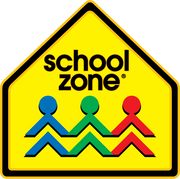The early days of a school year often set the tone for the entire year. Like a football game, yardage can be gained later, and a few strategic plays can turn things around at any point in the game, but how awesome to be heading for a touchdown as soon as the whistle blows (or the bell rings)?
Last year's gains and wins have faded
For a long time, most educators have agreed that lots of learning gained one school year gets lost over the summer, and the first few weeks of the new year involve getting back on track. The Hudson Country Montessori School suggests that many kids lose "two to three months in reading" over the summer and most "lose about two months of math skills." They also suggest these losses can accumulate year after year, leaving some students significantly behind their peers by fifth grade.
In addition to these expected losses, recent standardized test scores have shown alarming drops in both math and reading. While many reports focus on middle schoolers and suggest that disrupted learning from the pandemic at a key stage in their education has likely played a role, that age group isn't the only one affected, nor is the pandemic likely the only cause, and research continues.
Plug kids into dynamic, supplemental resources

Whether just the usual "summer slide" or a new trend, helping kids review, catch up, and get ready for a new school year is important. School Zone offers two time-tested supplemental learning materials—flash cards and workbooks—covering a broad range of skills and ages.

Parents can find exactly what their child needs to work on. A few examples of flash cards include Picture Words and Numbers 0-25, both for ages 4+ and Sight Words for 5+. Workbooks include the Math Basics 1 Workbook that prepares first graders for math success as they count, add, subtract, and learn number place values. It also gives math-savvy kindergartners an added challenge and provides a good review for kids entering second grade. Versions of this workbook are also available for second, third, and fourth grade.

Or just grab a grade-specific 320-page Big Workbook and get a variety of cover-to-cover skill practice. A few examples are Big First Grade, Big Second Grade, and Big Third Grade. Their perforated pages make great, take-anywhere worksheets.

Anywhere Teacher, School Zone's online learning program for kids ages 2 to 8, offers nearly 3,000 games, books, interactive worksheets and more. It also has structured learning paths, designed by teachers, for preschool, kindergarten, and first grade. These paths help ensure kids are learning what they need to know, in the order they need to know it.

7 ways to kick things off
Here are a few more ideas for a strong start:
1 - Get kids reading 20-30 minutes a day. Books are important, but reading can also include Googling info on people, places, or things of interest.
2 - Play frequent math games; make them part of everyday activities like shopping, cooking, and travelling. How much does this cost? How many slices of cake or watermelon for each person? How many more miles to go?
3 - Encourage doing at least three pages a day in an age/grade-appropriate workbook. It's achievable and measurable, and it definitely adds up. Be generous with praise!
4 - Ease back into school-year routines including earlier wake-up and bedtimes. Being active during the day helps! Recommendations vary, and so do individual needs, but 9-12 hours of nightly sleep for ages 6-13 is common.
5 - Help kids plan ahead and get organized with all the supplies and materials they need. Think in terms of what's required for everyone but also take into account individual kids' needs.
6 - Review challenges from last year—both academic and social. That includes challenging concepts. Have kids been working on them?
7 - Write out goals for the new school year. Again, they can be academic and social. Have kids do their own and then review, discuss, and add as needed.
Finally, try running this idea by kids: Jenny Han, author of children's and young adult fiction, was included in a list of quotes compiled by Woman's Day as saying, "I've always loved the first day of school better than the last day of school. Firsts are best because they are beginnings."
Position back-to-schoolers of every age for a great beginning!












